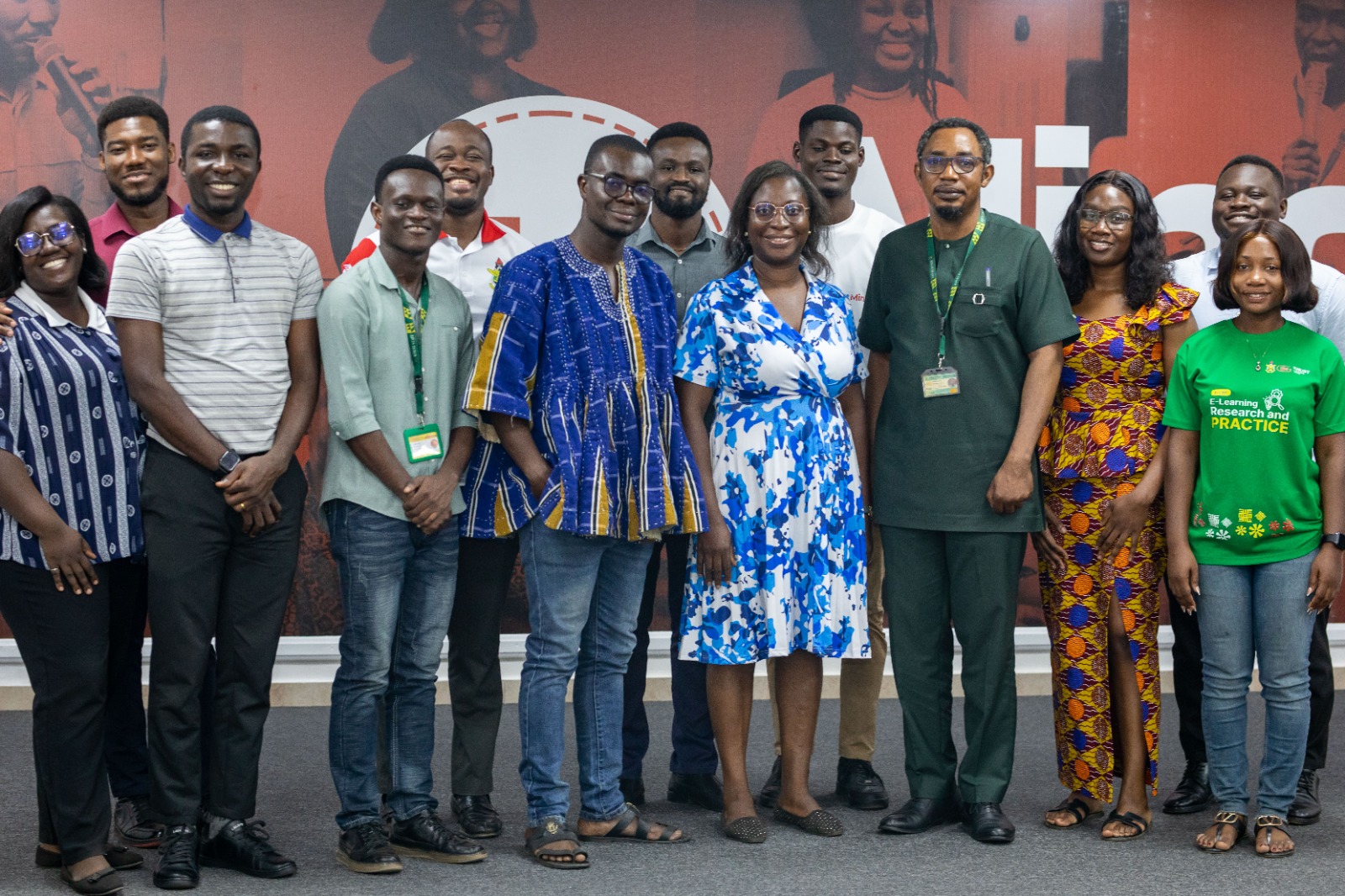The Kwame Nkrumah University of Science and Technology's (KNUST) committee drafting the next Strategic Plan has visited the E-Learning Centre to gather input on integrating digital learning into the university’s future.
The meeting provided an open forum for the committee, represented by Professor Clifford Amoako, to discuss evolving teaching and learning models with the Centre's leadership, including Director Professor Emmanuel Kofi Akowuah and Senior Assistant Registrar Abigail Dzama Anderson.
Professor Amoako emphasized to the staff that the new plan must reflect the rapid technological shifts witnessed since the last plan's adoption.
“Many things have changed since 2016. Digital tools have taken over daily work. AI has moved quickly into classrooms and offices. We need a plan that keeps up with all of this,” Professor Amoako said.
He noted that the committee's review highlighted the accelerating pace of change in the last five years, particularly post-2020.
"If this is the pace, then the next five years will demand even more. We cannot afford to work with old assumptions,” he stated.
Professor Akowuah welcomed the visit, stating that the Centre’s daily operational experience is vital for informing the strategic direction.
“The Centre works with staff and students every day. We see problems early. We see what people need. So our input is not theory; it is what happens on the ground,” he said.
He urged his team to contribute candidly, saying, "Many of our colleagues have gone through the draft. They know where the gaps are. This is a good time for them to speak so the plan reflects real work, not guesswork.”
Professor Amoako walked staff through parts of the draft plan relevant to the Centre, which include industry-linked teaching, Flexible learning systems, digital tools for academic departments and stronger alignment between academic programmes and modern workplace needs.
“We want to see programmes that match how people work today. That means more digital options. And that makes the E-Learning Centre a key player,” Professor Amoako explained.
During the session, staff raised concerns regarding access, digital readiness, teaching support, and the need for smoother systems to reduce student stress. Unit heads also specified the resource needs required for the Centre to operate more efficiently.
The Registrar encouraged the Centre to maintain detailed documentation of its work so that progress can be effectively monitored once the final strategic plan is approved. The committee is continuing consultations with other university units as it finalizes the document.
Story by: Mona Lisa Frimpong

















